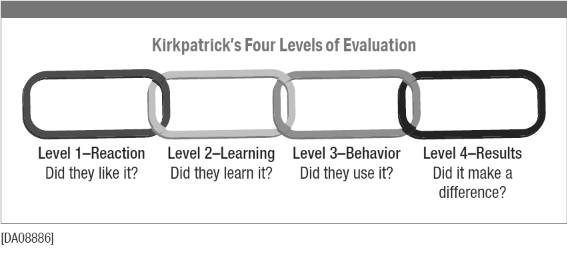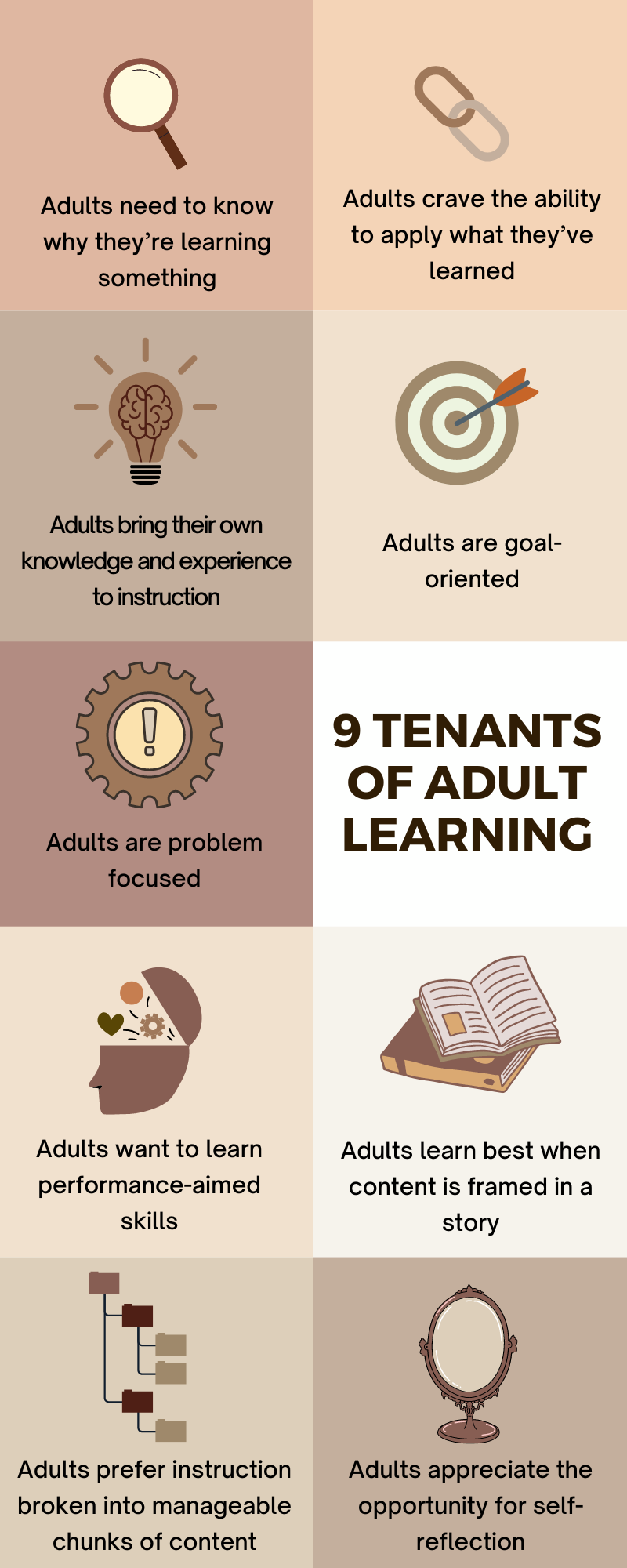
Intro to Adult Education
The Institutes’s Enterprise Education Team subscribes to the following tenants of adult learning theory:
Adults need to know why they’re learning something, and better yet, how it relates to the work they do. They thrive when instruction is pragmatic, significant and relevant to their position.
Particularly successful instructors explicitly identify why and how their instruction is relevant to their learners in the first few minutes of their instruction, typically with a series of learning objectives. After, they regularly reiterate relevancy, sometimes framed as takeaways, throughout the remainder of their session.
Adults bring their own knowledge and experience to instruction. They’re regularly contextualizing what they already know with what they’re being taught, building new knowledge on top of prior knowledge.
Savvy instructors effectively leverage this behavior by activating adult learners’ prior knowledge (or suspected knowledge) through activities like pretests, quizzes, self-reflection exercises (e.g., “Write the first three words that come to mind when you hear the word reinsurance.”), and rhetorical strategies (e.g., anchoring content within learners’ shared experiences). In doing so—by bringing learners’ prior knowledge to the forefront—instructors help learners make more meaningful connections between old content and new content, thereby strengthening their understanding of the latter.
Adults crave the ability to apply what they’ve learned, and absent that opportunity, want instructors to use examples that demonstrate its application. (Ideally, instructors aspire to guide learners through instruction that adheres to the Kirkpatrick Evaluative Model [see Figure 1], though contracted occupational educators may not have access to data to confirm Levels 3 or 4.)
Note. From Train the Trainer, by the American Institute for Chartered Property Casualty Underwriters, 2021, p. 6.13.
Figure 1
Adults are goal-oriented. Their education is purposeful, a means to a personal or professional end, usually gainful employment, career advancement, and/or social mobility. Particularly successful instructors regularly recognize and reinforce those motivations.
Adults are problem-focused. They know and have experienced common problems in their profession and are looking for realistic, easy-to-implement solutions. Problem-centered instruction reinforces practicality and ensures adult learners are getting what they need.
Adults want to learn performance-aimed skills, things that they can showcase in their positions and promote on LinkedIn. Instructors do well reinforcing that pragmatism throughout their sessions.
Adults learn best when content is framed in a story, organized in a narrative that is familiar and encourages learners to bring prior knowledge and experiences to make meaningful connections.
Adults prefer instruction be broken down into manageable chunks of content. Learner engagement is contingent on instructors finding the right balance between too much and too little information while creating periodic, reflective breaks between concepts.
Adults appreciate the opportunity for self-reflection. Given time to consider what they’ve learned, adults are more likely to consider how they’d use it.


